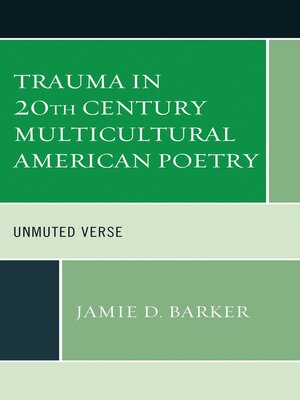Trauma in 20th Century Multicultural American Poetry
ebook ∣ Unmuted Verse · Reading Trauma and Memory
By Jamie D. Barker

Sign up to save your library
With an OverDrive account, you can save your favorite libraries for at-a-glance information about availability. Find out more about OverDrive accounts.
Find this title in Libby, the library reading app by OverDrive.



Search for a digital library with this title
Title found at these libraries:
| Library Name | Distance |
|---|---|
| Loading... |
In Trauma in 20th Century Multicultural American Poetry, Jamie D. Barker argues that by using literary trauma theory in conjunction with a reader response approach, readers can gain a better understanding of how poetry can work towards building community and encouraging empowerment over oppression by establishing collectives of people who may share similar stories and experiences connected to trauma. Rather than demonstrating how the poetry may fail or trying to establish what traumatic events the speaker (or poet, in some studies) may have encountered and the significance thereof, this study focuses on how the reader may find community with the ideas represented within the poem. The poetry of various ethnicities are examined, including African American poets Amiri Baraka and Lucille Clifton, Native American poets Robin Coffee, Linda Hogan, and Peter Blue Cloud, as well as Japanese American poets Mitsuye Yamada, Keiho Soga, and Lawson Fusao Inada. Although many of these poets have had their poems examined in the past, none have been explored through this type of approach. Furthermore, very few studies have expanded upon the ideas of literary trauma theory by using reader response, and no writings have examined the idea of ambivalence in poetry as this study does.







